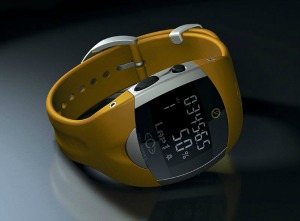A recent NIH-supported study by the Stanford University School of Medicine, shows that wearable biosensors (for example, a fitness monitor) can play an important role in early detection of abnormalities in the body and perhaps serious medical conditions. The report in PLoS Biology, describes how these biosensors monitor heart rate and other vital signs, such as skin temperature and blood oxygen levels. This could reveal information that possibly shows the onset of infection, insulin resistance, or inflammation.

The Stanford research team collected nearly 2 billion measurements from 60 participants in the study. Data collected from various sensors and periodic medical tests included information on weight, sleep, daily steps and exercise, caloric intake, heart rate, blood oxygen levels, skin temperature, and even exposure to gamma rays and X-rays.
The study compared the individual’s baseline data with deviations throughout the project. If algorithms are developed to pick up on these deviations, then the data could possibly be used for clinical diagnostics, research, and treatments. Specific deviations and patterns from normal baselines seem to correlate with particular health problems. The researchers hope that these tests could identify inflammations before individuals get sick from infections, cardiovascular issues, Type 2 diabetes, autoimmune diseases and even cancer.